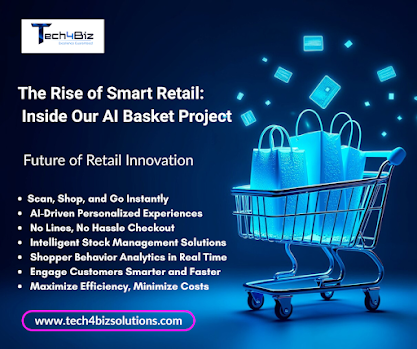Harnessing AI for Advanced Media Solutions: The Future of Digital Content
The media and entertainment industries are undergoing a significant transformation, driven by advancements in artificial intelligence (AI). From content creation to distribution and personalization, AI is revolutionizing the way businesses engage with their audiences and deliver compelling experiences. In this article, we will explore how AI is transforming key aspects of the media and entertainment landscape and what this means for the future.
1. Personalized Content Recommendations
One of the most prominent ways AI is changing media consumption is through personalized content recommendations. Streaming platforms, such as Netflix and Spotify, leverage AI algorithms to analyze user behavior and preferences, offering tailored suggestions for movies, TV shows, and music.
How It Works:
AI models analyze user watch history, search behavior, and ratings.
Algorithms identify patterns and similarities to suggest content aligned with user interests.
Continuous learning ensures recommendations evolve with changing preferences.
This level of personalization enhances user satisfaction and increases engagement, making AI a critical tool for audience retention.
2. AI-Driven Content Creation
AI is no longer just a tool for recommendation engines it is also being used to create content. AI-generated articles, scripts, music, and even video content are becoming more prevalent.
Examples:
Text Content: AI-powered tools can generate news articles, social media posts, and product descriptions.
Video and Animation: Platforms like DeepArt and Runway leverage AI to create animations, deepfakes, and visual effects.
Music Composition: AI systems like AIVA (Artificial Intelligence Virtual Artist) can compose original music based on specific styles and genres.
While AI-generated content is not yet a complete replacement for human creativity, it serves as a valuable tool for speeding up production and reducing costs.
3. Enhanced Audience Engagement Through Chatbots and Virtual Assistants
AI-powered chatbots and virtual assistants are becoming essential for improving audience engagement and customer service in the media industry. These tools can:
Answer user queries in real-time.
Provide content recommendations based on preferences.
Offer customer support for streaming or subscription issues.
Virtual assistants can also be embedded in mobile apps and websites to provide a more interactive and engaging experience for users.
4. Automated Video Editing and Post-Production
AI tools are transforming the traditionally labor-intensive process of video editing and post-production. Automated editing software can:
Recognize scenes, transitions, and key moments in videos.
Apply filters and effects based on pre-defined styles.
Generate subtitles and translations using speech recognition technology.
These innovations save time and allow creators to focus more on storytelling and creativity than technical details.
5. Predictive Analytics for Audience Insights
Understanding audience preferences and behavior is essential for creating relevant content. AI-powered predictive analytics tools can:
Analyze audience demographics and behavior to forecast content trends.
Identify which genres, themes, or formats are likely to succeed.
Optimize marketing strategies to target specific audience segments.
By leveraging predictive analytics, media companies can make data-driven decisions and maximize the impact of their content investments.
6. Content Moderation and Compliance
AI is also playing a vital role in content moderation and compliance. Social media platforms and streaming services use AI to:
Detect and filter inappropriate or harmful content.
Identify copyrighted material to prevent unauthorized usage.
Ensure content meets regulatory and community guidelines.
AI's ability to scan large volumes of content quickly and accurately helps maintain brand integrity and protects users from harmful content.
7. AI-Enhanced Visual Effects (VFX)
The film and gaming industries are leveraging AI to enhance visual effects and animation. AI can:
Automatically generate realistic backgrounds, landscapes, and textures.
Improve facial animations and character movements.
Enhance color grading and lighting effects for more immersive visuals.
These advancements reduce the time and cost of VFX production while delivering higher-quality visuals.
8. Speech Recognition and Language Translation
AI-powered speech recognition technology is being used to provide real-time subtitles, translations, and voiceovers for global audiences. This capability allows content creators to:
Reach broader audiences across different languages and regions.
Improve accessibility for hearing-impaired viewers.
Deliver more inclusive and engaging experiences.
Speech recognition also enhances search functionality by allowing users to find content through voice commands.
9. Fraud Detection and Piracy Prevention
Piracy and fraud are significant challenges in the media and entertainment industries. AI helps combat these issues by:
Identifying and removing pirated content from platforms.
Detecting fraudulent streaming or subscription activities.
Monitoring for fake reviews or bot-generated traffic.
By using AI for piracy prevention, media companies can protect their intellectual property and revenue streams.
10. Future Possibilities: AI-Generated Virtual Worlds
Looking ahead, AI could play a pivotal role in the creation of virtual and augmented reality (VR/AR) experiences. AI-generated virtual worlds could offer:
Immersive storytelling experiences that adapt in real-time to user actions.
Virtual concerts, movie screenings, and interactive entertainment events.
Personalized avatars and environments for enhanced user engagement.
These possibilities open up new avenues for creativity and audience interaction in the digital age.
Conclusion
AI is transforming the media and entertainment industries by driving innovation in personalization, content creation, audience engagement, and operational efficiency. As AI technologies continue to evolve, media companies that embrace these advancements will be better positioned to meet the demands of modern audiences and stay ahead of the competition. By leveraging AI strategically, businesses can create more engaging, inclusive, and memorable experiences that define the future of digital content.



.png)
Comments
Post a Comment